Tuesday, 29 October
In class
- Turned in caffeine log analysis.
- Unit 2 objectives review.
- Finalize notebook.
Assignments
- The votes are in. The Unit 2 exam will be given on Monday, 3 November.
- Notebooks will be collected on Monday.
Friday, 25 October
What are the similarities and differences between drugs and natural highs?
- Finish, print, and submit your cortisol lowering menu.
- Lecture/discussion: Self-Medication and Its Alternatives.
- Is caffeine a drug?
- Review your caffeine log.
- Type response to the Analysis questions.
- Finish the paper by responding to the following prompt (and adding it to the Analysis questions you typed above): “Given what you now know about drugs and the brain, explain if you would classify caffeine as a drug.
Assignments
- Continue updating your notes for Notebook Check 2.
- Complete the Caffeine analysis outlined above. Print and bring to class Tuesday.
- If you were absent for any of the meditations you can find them on the class EdPuzzle page. Complete the meditation at home and then add your reflection to the titled page in your notebook.
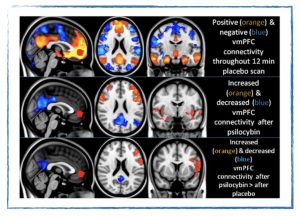
Wednesday, 23 October
What foods are known to decrease levels of cortisol?
In class
- The third and final of our types of relaxation techniques: Guided Imagery Meditation.
- Finish your weekly exercise routine project, print, and turn in.
- Diet and Stress
- Five Foods That Naturally Decrease Cortisol.
- Menu Creation of a cortisol lowering diet.
Assignments
- Begin organizing your notes for Notebook Check 2.
- Extra Credit Opportunity: The Restorative Power of Nature. (Due on Tuesday, 29 October.)
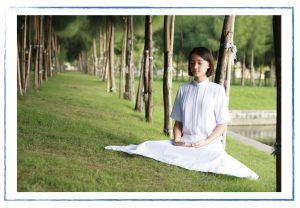
Monday, 21 October
How does exercise influence our stress response?
In class
- Welcome and a brief statement on political speech.
- The second of our meditation types: autogenic meditation.
- Exercise and the brain.
- Sudoku puzzle
- A pre and post test with exercise.
- Creating a weekly exercise program.
Assignments
- Read Best Foods for a Healthy Brain and Improved Memory on p. 125 and How Omega-3 Fish Oil Affects Your Brain and Mental Health on p. 134.
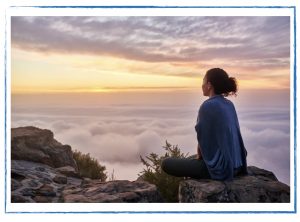
Thursday, 17 October
What does an individual focus on when doing a progressive muscle meditation session?
In class
- Turn in your sleep hygiene plan.
- What does the research say about neurofeedback?
- Open for Discussion: A scientific debate on the use of neurofeedback.
- Progressive Muscle Meditation.
Assignments
- Read p. 121 – 124.
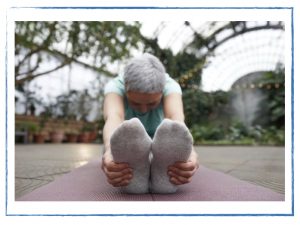
Tuesday, 15 October
What happens in our brains during sleep?
In class
- Summarize the class data from The Sleep Project.
- Why sleep is so important. (lecture/discussion notes)
- 60 Minutes: The Science of Sleep
- How does chronic sleep debt affect our ability to perform tasks?
- Creating a sleep hygiene plan.
Assignments
- How fast are your reactions? Sheep Dash
- Type up a short response/reflection to item 6 on the Science of Sleep: Create a sleep hygiene plan. That is, what things should one do and not do to optimize sleep. Print this out and bring to class on Thursday.
- Read p. 103 – 106 and p. 114 – 118 then, in your notebook, title a new page Neurofeedback and respond to the following prompt:
- After reading the article, Can Monitoring Brain Waves Boost Mental Health?, consider whether you believe neurofeedback qualifies as legitimate science. What criteria should we use to determine if a practice is scientifically valid? Does the evidence presented in the paper meet these criteria? Be sure to discuss the role of scientific research, reproducibility of results, and the potential influence of bias or placebo effects in forming your opinion.
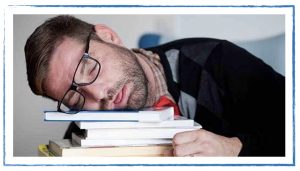
Thursday, 10 October
How does our understanding of the stress response explain downshifting?
In class
- Feedback and revisions for the Unit 1 exam.
- Review of the stress response and its relationship to downshifting.
- The Science of Sleep
- Whiteboard problem set.

Tuesday, 8 October
What stressors are common at different times of life?
In class
- Welcome and catch up.
- The Sleep Study project.
- Whiteboards: What stressors exist at different phases of our lives?
- Stress and the Stress Response.
Assignments
- Begin your sleep study journal.
- Read the following articles on the science of sleep in your textbook:
- How Sleep Works, p. 107 – 111.
- Nightly Sleep is Key to Student Success, p. 112 – 113.
- Alpha, Beta, Theta, p. 57 – 60.
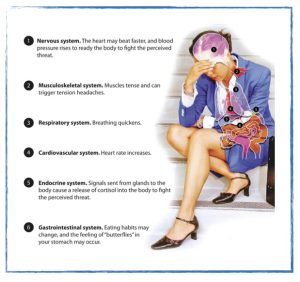
Tuesday, 1 October
In class
Assignments

